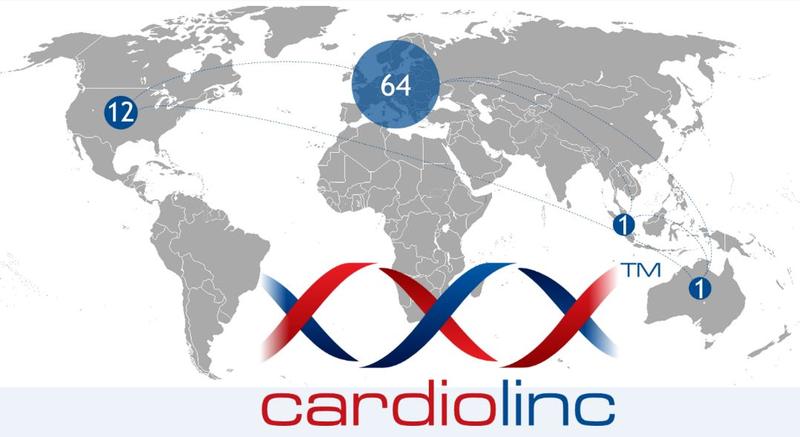
Cardiolinc™: an NPO to personalize treatment for cardiovascular disease patients

Cardiolinc network
Cardiolinc
Cardiovascular disease is responsible for one in every three deaths globally, generating substantial costs and social burden due to reduced quality of life and premature deaths. To fight this epidemic, Cardiolinc™’s mission is to understand the role of regulatory RNAs in cardiovascular disease and promote research collaborations to drive the development of precision medicine, aiding to faster translate discoveries in the laboratory into the clinical setting.
Cardiolinc™ was born from the Cardiovascular Research Unit in LIH’s Department of Population Health in 2014 on the belief of Dr. Yvan Devaux, its founder, that non-coding RNA research in cardiovascular disease could move faster by collaboration. Since its creation, the network has been serving as a platform to connect scientists worldwide from multiple disciplines. Through Cardiolinc™, these researchers and clinicians are able to find one another, exchange knowledge, share ideas, and build projects towards a common goal.
With the development of novel technologies, it is easier to unravel new knowledge, but it gets increasingly difficult for scientists to conduct groundbreaking research individually. This scenario creates both the opportunity and the need for collaboration. Cardiolinc™ aims to coordinate and facilitate this process. It identifies openings for funding and supports its members to overcome the challenges of multidisciplinary collaboration, creating effective partnerships to bring new therapies to patients sooner, potentially improving the lives of millions of people and reducing healthcare costs.
Despite the ferocious competition in science, collaboration and synergy across disciplines and across academic and industrial organizations can empower groups of researchers. Cardiolinc™ saw the number of its members double last year alone. At the time of the NPO registration, the network was represented by 66 members and 13 industry partners from backgrounds such as cardiology, genetics, molecular biology, computational science, biobanking, and biospecimen science.
Cardiolinc™ as an NPO will be able to provide consulting, transfer knowledge and technology via courses or partnering with industry, write recommendations, develop and improve tools for research, and carry out clinical trials.
To overcome the obstacles of achieving breakthrough science and leap science forward to defeat cardiovascular disease, collaborations and synergies between scientists are key. Revolutionary ideas come from thinking creatively across disciplines and being brave to try new solutions to old problems.
About the Cardiolinc™ network:
Cardiolinc™ is an international research network based in Luxembourg aiming to develop precision medicine by understanding the role of regulatory RNAs in cardiovascular disease and promoting collaborative research. Cardiolinc™ connects over 80 scientists, clinicians, and industry members worldwide from multiple disciplines, such as cardiology, genetics, molecular biology and computational sciences. It coordinates and eases the challenges of multidisciplinary collaboration, creating effective partnerships to translate discoveries into clinical applications. Through Cardiolinc™, Luxembourg is now on the map of international cardiovascular research.
Contact:
Dr. Clarissa P. da Costa Gomes, Cardiolinc™ coordinator
Luxembourg Institute of Health
1A-B rue Thomas Edison
1445 Strassen, Luxembourg
contact@cardiolinc.org












